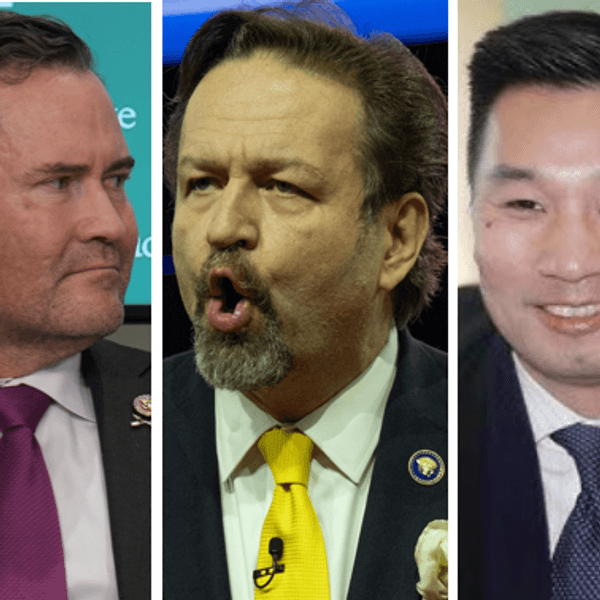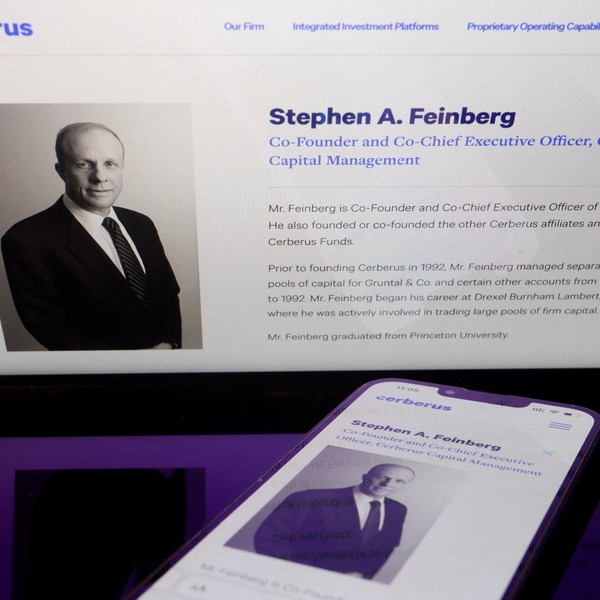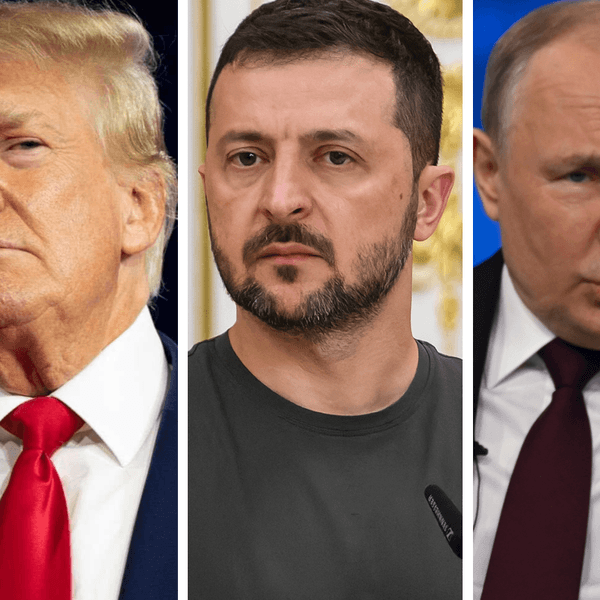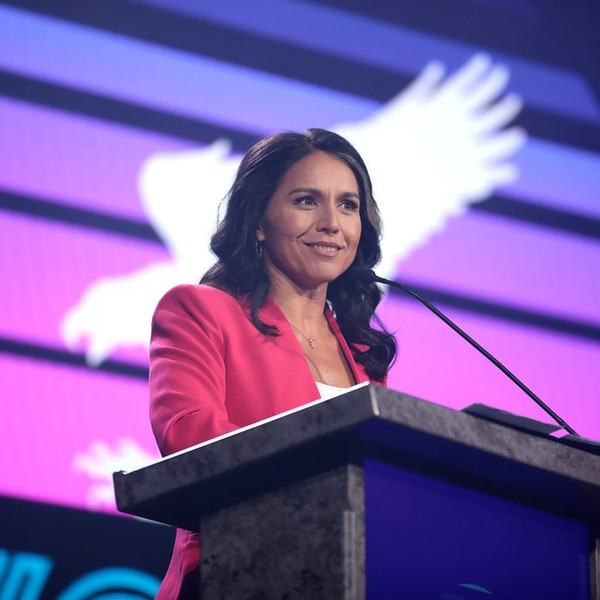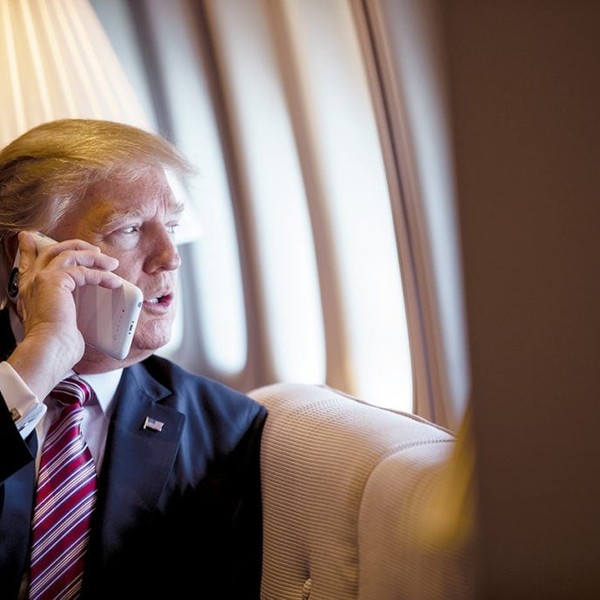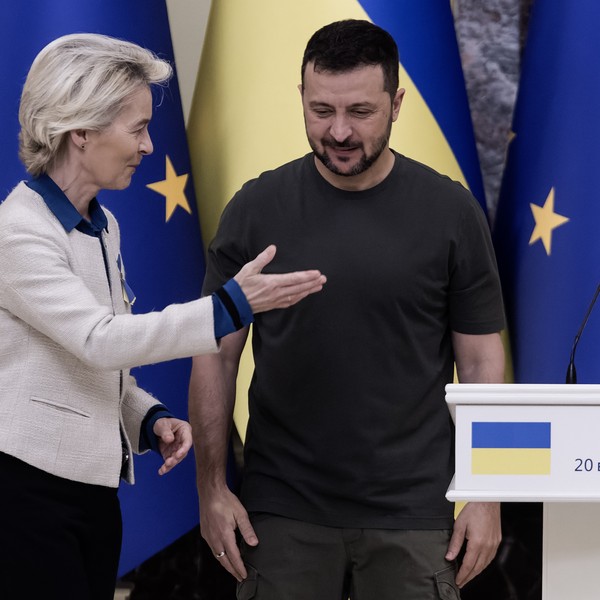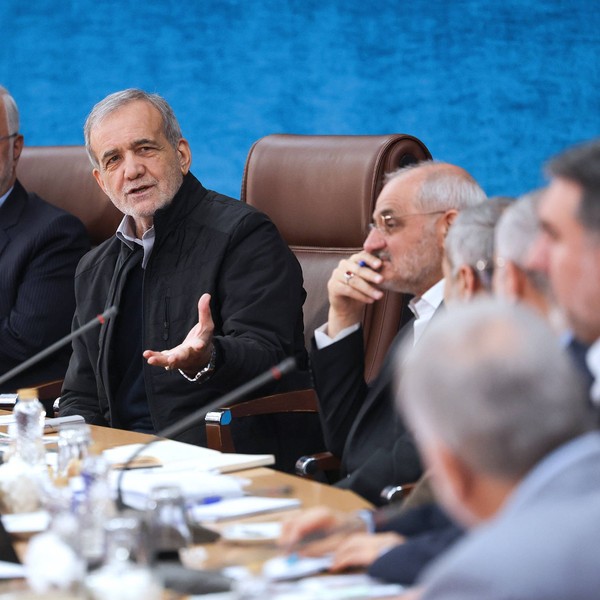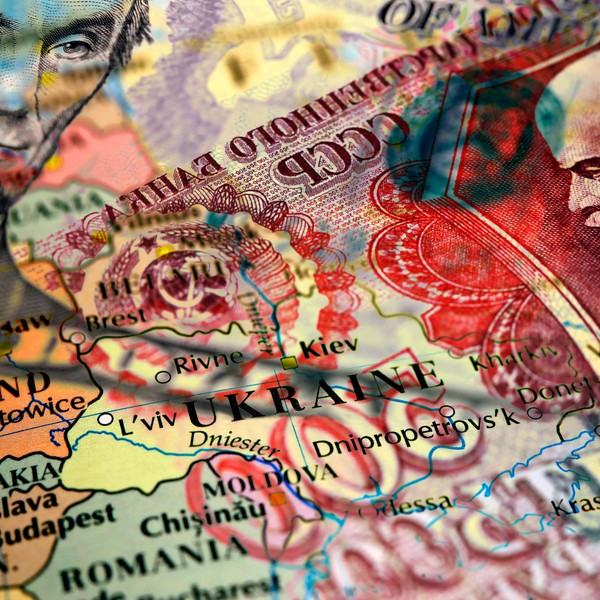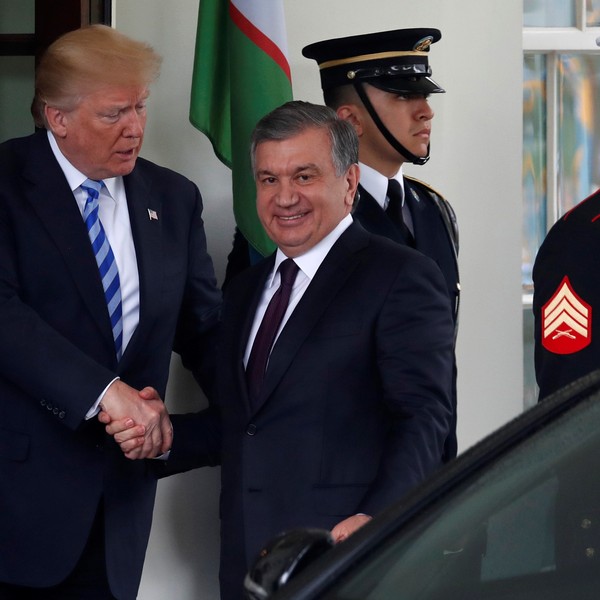This article was co-published with The Guardian
Some of Washington’s most powerful lobbyists are giving their services to Ukraine for free and also benefiting from millions in fees from Pentagon contractors who stand to benefit from the country’s ongoing war with Russia.
Following Russian President Vladimir Putin’s internationally condemned decision to invade Ukraine there was an outpouring of support to the besieged nation from seemingly every industry in America. But, arguably, one of the most crucial industries coming to Ukraine’s aid was Washington’s powerful lobbying industry.
The invasion has led some of the lobbying industry’s biggest players to do the unthinkable — lobbying for free. While the influence industry may have altruistic reasons for representing Ukraine pro-bono, some lobbying firms also have financial incentives for aiding Ukraine: they’ve made millions lobbying for arms manufacturers that could profit from the war.
The Surge in Pro-Bono Ukraine Lobbying
U.S. law requires agents of foreign principals who are engaged in political activities to make periodic public disclosures of their relationship under the Foreign Agents Registration Act (FARA). Twenty-five registrants have agreed to represent Ukrainian interests pro-bono since the Russian invasion of Ukraine. Before the war, just 11 FARA registrants were working on behalf of Ukrainian interests. "I don’t recall a comparable surge in pro bono work for any foreign principal," said David Laufman, a partner at the law firm Wiggin and Dana, who previously oversaw FARA enforcement at the Justice Department.
Many of these new pro-bono Ukrainian lobbyists are pushing for greater U.S. military support for the Ukrainian military. As one registrant explained in a FARA filing, they intend “to lobby members of the US Government to increase US Department of Defense spending on contracts related to equipment and other efforts which will aid the ability of the Ukrainian military to succeed in its fight against the Russian military.”
While many, if not most, of these pro-bono lobbyists may be doing this work purely out of solidarity with Ukraine, some of the firms working free of charge for Ukraine have an added incentive.
Hogan Lovells
Before winning the speakership in the new Republican Congress, representative Kevin McCarthy warned that Republicans wouldn’t approve a “blank check” for Ukraine aid once they took power. But, just last week the GOP’s biggest fundraiser agreed to provide pro-bono assistance in loosening Congress’s purse strings when it comes to Ukraine.
On February 16, former senator Norm Coleman, senior counsel with law firm Hogan Lovells, who oversaw the raising and spending of over $260 million in funds supporting Republican congressional candidates in the 2022 midterm elections, filed FARA paperwork revealing that he is pro-bono lobbyist for a foundation controlled by Ukrainian oligarch Victor Pinchuk.
Coleman, who has extensive experience as a lobbyist for foreign interests via his long standing role as an agent for Saudi Arabia, was already busy at work for Ukraine. February 4 emails, disclosed as part of Coleman’s FARA disclosures, revealed him requesting assistance from senators Lindsey Graham and Thom Tillis’s chiefs of staff in hosting an event at the Capitol “...to give members of Congress a better understanding of the horrific loss of life and the tragic agony that the people of Ukraine have experienced over the course of the last year as a direct result of Russian war crimes” and “do as much as possible to ensure continued, strong, bipartisan support for the truly heroic efforts that this administration and Congress have made to provide the essential military and economic assistance to Ukraine.”
While Hogan Lovells conducts this work pro-bono, two of the firm’s paying clients, Looking Glass Cyber Solutions and HawkEye 360, have extensive Defense Department contracts and an interest in the conflict in Ukraine.
Looking Glass, which paid Hogan Lovells $200,000 in 2022, holds a five year contract with the Department of Defense “to provide tailored cyber threat intelligence data and enhance the mission effectiveness of U.S. military cyber threat analysts and operators” and writes on its website about the role of such threats in Russia’s military strategy.
HawkEye 360, which also paid $200,000 to Hogan Lovells in 2022, similarly is a Defense Department contractor, specializing in detection and geolocation of radio signals. Their detection network conducted analysis in Ukraine and their website boasts of identifying GPS interference in Ukraine, appearing to be part of Moscow’s “...integration of electronic warfare tactics into Russian military operation to further degrade Ukraine’s ability for self-defense.”
Hogan Lovells did not respond to multiple requests for comment.
BGR
BGR Government Affairs (BGR), a lobbying and communications firm, began working pro-bono for two Ukrainian interests last May, the contracts are with Vadym Ivchenko, a member of Ukraine’s parliament, and Elena Lipkivska Ergul, an advisor to Ukraine president Volodymyr Zelenskyy.
In 2022 BGR made more than half a million dollars lobbying for Pentagon contractors, some of whom are already profiting from the Ukraine war. Raytheon, for example, which paid BGR $240,000 to lobby on its behalf in 2022, according to OpenSecrets, has already been awarded more than $2 billion in government contracts related to the Ukraine war.
Indeed, two days before Russia’s invasion of Ukraine, a BGR adviser was publicly calling for increased military aid to Ukraine in the face of Russian President Vladimir Putin’s recognition of the so-called Luhansk and Donetsk People's Republics as independent states.
“Militarily, the United States and NATO allies need to get far more serious about helping Ukraine defend itself,” wrote BGR Senior Adviser Ret. Amb. Kurt Volker in an article published by the Center for European Policy Analysis (CEPA).
His article, “Buckle Up: This is Just the First Step,” was promoted on the BGR website. CEPA did not disclose Volker’s BGR affiliation in the article. The affiliation is disclosed elsewhere on CEPA's site.
“BGR has no conflict of interest and is proud of its work on behalf of Ukraine and all of its clients,” said BGR President Jeffrey H. Birnbaum in a statement responding to questions about whether their work posed any conflict of interest.
Mercury
Mercury Public Affairs (Mercury), a lobbying, public affairs and political strategy consultancy, began working pro-bono for GloBee International Agency for Regional Development ("GloBee"), a Ukrainian NGO, in mid-March 2022. While the firm made headlines for agreeing to work for a Ukrainian client pro-bono, the firm's FARA filing later in the year shows that Mercury’s work consisted of sending just four emails on Globee’s behalf in the first three-and-a-half months of this arrangement.
Mercury, like BGR, was also working on behalf of Pentagon contractors in 2022, while working for a Ukrainian client pro-bono. All told, Mercury reported being paid more than $180,000 for lobbying on behalf of Pentagon contractors in 2022.
Mercury’s work for a Ukrainian client is also notable because prior to the Ukraine war the firm had, for years, been working on behalf of Russian interests. This work included lobbying on behalf of Russia’s Sovcombank, as well as a Russian energy company founded by Russian oligarch Oleg Deripaska. Deripaska was recently implicated in a scheme to violate US sanctions, which included payments to a former FBI agent that had previously investigated him. Mercury dropped both of these Russian clients when the Ukraine war began, but not before earning nearly $3 million from these Russian interests in the five years before the firm agreed to work for a Ukrainian client pro-bono, according to FARA filings.
Mercury did not respond to multiple requests for comment.
Navigators Global
On April 29, 2022 Navigators Global, which describes itself as an “issues management, government relations and strategic communications firm,” registered under FARA to represent the Committee on National Security, Defence, and Intelligence of the Ukrainian Parliament. According to the firm's FARA filing, they reached out to dozens of key members of Congress on behalf of the Ukrainian parliament — including eight phone calls, texts, and emails with now-Speaker of the House Kevin McCarthy — and contacted the House and Senate Armed Services Committees two dozen times.
As Navigators Global was doing this pro-bono lobbying of the policymakers in Congress with, arguably, the greatest sway over U.S. military assistance to Ukraine, the firm was also raking in revenue from Pentagon contractors. Specifically, in 2022 Navigators Global also made $830,000 working on behalf of Pentagon contractors, according to lobbying data compiled by OpenSecrets. The firm’s lobbying filings also show that their work for these contractors was directed, amongst other issues, at the “FY23 National Defense Authorization Act,” the defense policy bill that increased spending on the “Ukraine Security Assistance Initiative” by half a billion dollars.
Navigators Global did not respond to multiple requests for comment.
Ogilvy
On August 26, 2022 Ogilvy Group, a massive advertising and public relations agency, registered under FARA to work with the Ministry of Culture and Information Policy of Ukraine on the Ministry’s “Advantage Ukraine Initiative.” The initiative's website describes it as the “Investment initiative of the Government of Ukraine,” and perhaps unsurprisingly, the top investment option is Ukraine’s defense industry. Ogilvy is joined in this endeavor by fellow FARA registrants Group M and Hill & Knowlton Strategies, as well as the marketing company Hogarth Worldwide which has not registered under FARA.
While the Ogilvy Group spread “the message that Ukraine is still open for business,” as its statement of work with the Ministry explains, Ogilvy Government Relations was lobbying for Pentagon contractors who paid the firm nearly half-a-million dollars in 2022. While these two Ogilvy organizations are technically separate entities, they are owned by the same parent company WPP. At least one of the contractors that Ogilvy Government Relations lobbies for, Fluor, would appear to directly benefit from increased U.S. military support for Ukraine and heightened U.S. military presence in Europe more generally. In 2020, the U.S. Army Europe’s 7th Army Training Command awarded Fluor with a five year Logistics Support Services contract, which a Fluor spokesman explained, “positions Fluor for future work with the U.S. European Command and the U.S. Africa Command headquarters located in Germany.” Fluor paid Ogilvy Government Relations $200,000 for lobbying in 2022, according to OpenSecrets.
Ogilvy did not respond to a request to comment on the record.
***
As the war in Ukraine heads into its second year, U.S. defense spending continues to balloon. “There’s high demand for weapons to transfer to Ukraine and to replenish shrinking U.S. stockpiles…contractors are seeing billions of dollars in Ukraine related contracts,” Julia Gledhill, who investigates defense spending at the government watchdog the Project On Government Oversight, explained in an interview. Weapons and defense contractors received nearly half — $400 billion — of the $858 billion 2023 defense budget. With this, the flood of money to weapons firms, and their expenditures on lobbyists, will only continue to grow. For many lobbying firms, those expenditures may create growing financial incentives to conduct pro-bono work steering U.S. policy in directions generating synergies with the interests of their paid clients.
This article was amended on March 3 2023 to clarify the US charges made against Oleg Deripaska.
This article was amended on March 17 2023 to clarify CEPA's disclosure of Volker's BGR affiliation elsewhere on their website.




